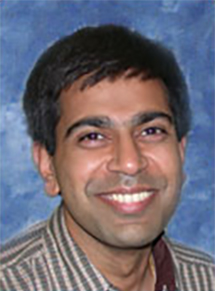Seminars
Dr. Sarma Gorti
Computational Sciences & Engineering Division
Oak Ridge National Laboratory
Structural Analyses of the 2MW Mercury Target for the Proton Power Upgrade Project

ABSTRACT: The Spallation Neutron Source (SNS) located at ORNL is designed to provide a steady source of neutrons for a number of instruments in order to enable state-of-the-art scientific research. The neutrons are generated by a nuclear spallation process when pulses of a high energy proton beam collide with a liquid mercury target. During the operational life of the mercury target, the 60 Hz proton beam can lead to more than 10^8 pulses. The liquid mercury is circulated in a stainless steel target module, which needs to be replaced periodically due to the damage that it suffers from cavitation and high cycle fatigue from the pressure pulses. As part of the Proton Power Upgrade (PPU) project, the SNS requires a target module that can operate safely and reliably under an increase in the proton beam power from the current 1.4MW to 2MW. The higher beam power generates more heat and increases the instantaneous pressure pulse created from the proton beam striking the liquid mercury, and therefore, several design changes were made to withstand the increased burden on the target vessel. The target modules are evaluated to a set of design criteria in order to be deemed acceptable for operational use. This presentation will provide an overview of the static and transient dynamic analyses carried out on the PPU target module, in order to evaluate the target design against the structural design criteria under different normal and off-normal operating conditions that the target module might experience during service.
BIOGRAPHY: Sarma Gorti is a senior R&D staff member in the Computational Engineering & Energy Sciences Group within the Computational Sciences & Engineering Division. He joined ORNL as a post-doctoral research associate in 1995, and has been on the R&D staff since 1998. Dr. Gorti obtained a Bachelor of Technology in Mechanical Engineering from the Indian Institute of Technology, Madras, and M.S. and Ph.D. degrees in Mechanical Engineering from Cornell University, Ithaca, NY. His research interests are in the broad areas of computational mechanics and computational materials science, with particular emphasis on the application of modeling and simulation tools to the study of microstructure evolution during the thermo-mechanical processing of metals.